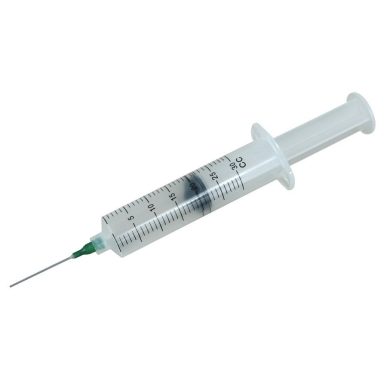
OTTAWA – Giving clean drug-injection needles to prisoners to stem the spread of infectious disease would make federal penitentiaries more dangerous places, senior correctional officials say. Syringe needles could too easily be used as weapons, the Correctional Service of Canada’s security director and a veteran prison warden say in affidavits filed with the Federal Court of Canada.
The Canadian HIV/AIDS Legal Network, which is helping lead a constitutional challenge of the federal refusal to provide clean needles, says the prison service’s stance makes no sense since inmates already have makeshift injection equipment made from contraband items.
The network, several other advocacy groups and former prisoner Steven Simons are asking the court to rule the current federal policy on needles violates Charter of Rights guarantees to life, liberty and security of the person.
Simons says he was infected with the hepatitis C virus and exposed to the risk of HIV infection as a result of a general lack of access to sterile needles, as well as another prisoner using his injection equipment.
Richard Elliott, the legal network’s executive director, said in an interview the Liberal government’s stated commitment to evidence-based policy gives him hope the matter can be settled out of court.
However, those prospects were dealt a blow recently when counsel for the federal government informed the network they would not take part in scheduled mediation sessions later this month.
Federal officials acknowledge that hepatitis C and HIV rates in prison are higher than those in the general population, and that many inmates have a history of drug use.
The Correctional Service has a “zero tolerance” policy on illicit drugs. It has tried to keep drugs from entering prisons and provides education and treatment to inmates. Although bleach is available in institutions, the prison service has drawn the line at offering clean needles.
The federal government has yet to file its main arguments in the case.
However, the affidavits from prison officials emphasize safety concerns about sanctioning needles for use.
Nick Fabiano, director general of security for the prison service, says an authorized item is much more likely to be converted into a makeshift weapon because it is readily available to inmates.
“For example, despite having protocols for the safe provision and use of razors, razors rank high as an item used as a weapon,” says Fabiano’s statement. “Similar to razors, needles can also be used as a weapon, despite having protocols in place.”
Inmates have converted syringes into weapons as a means of protection or to trade as a commodity, says prison warden Jay Pyke, then at Joyceville Institution, now at nearby Collins Bay in Kingston, Ont.
Over a two-year period, Pyke says in his affidavit, three officers at Joyceville were pricked by needles suspected of being used by inmates to inject drugs. In each case the officers immediately began a battery of antiviral medication to prevent possible HIV or hepatitis infection. They also had to live with the psychological impact of not knowing whether they would become ill.
In their filings with the court, Simons and the advocacy groups say needle programs have been implemented in other countries with positive results.
Fears of sterile injection equipment being used as weapons have not been borne out, Elliott said. “I don’t think it’s a valid objection.”
BY JIM BRONSKILL
Source:
Clean needle programs too dangerous, federal prison officials tell court




Be the first to comment